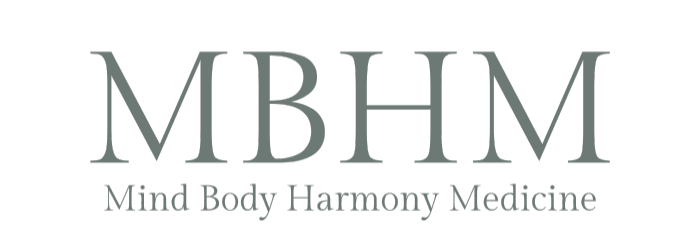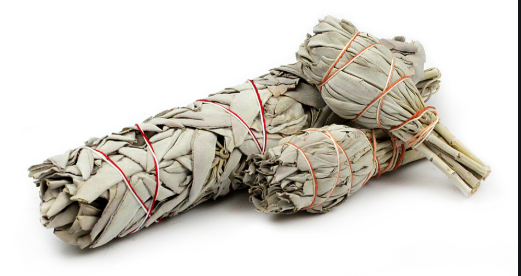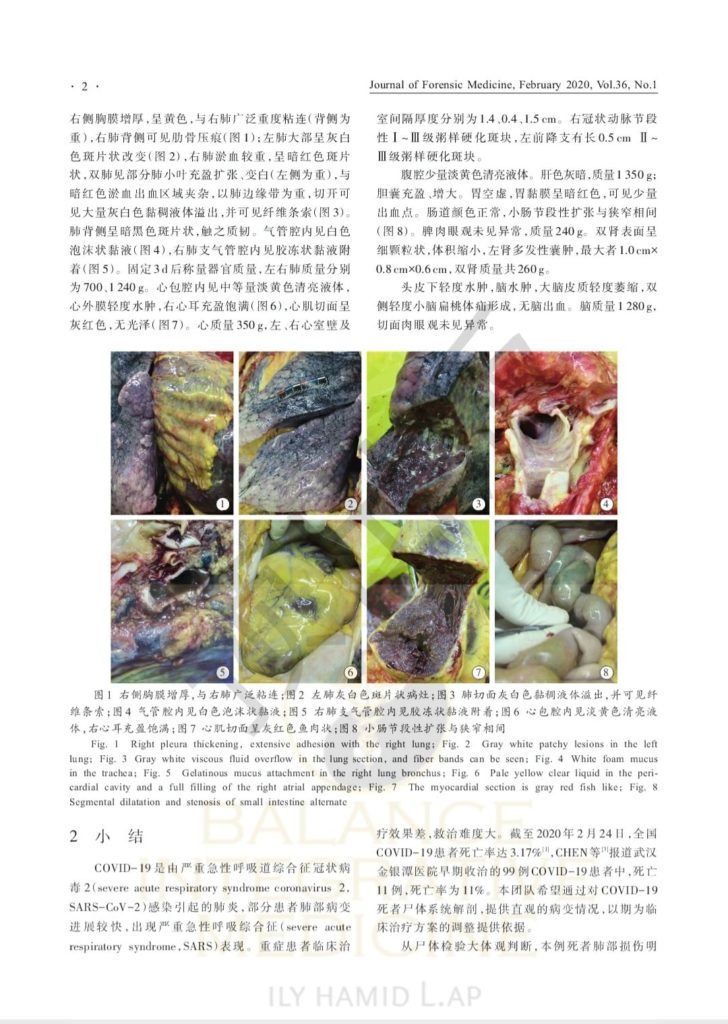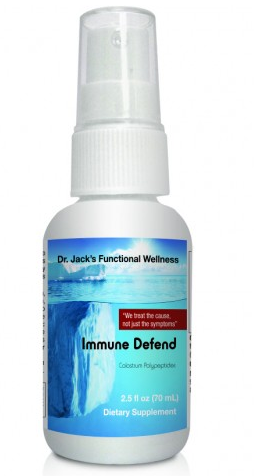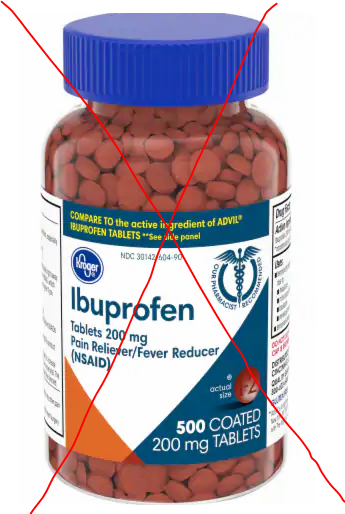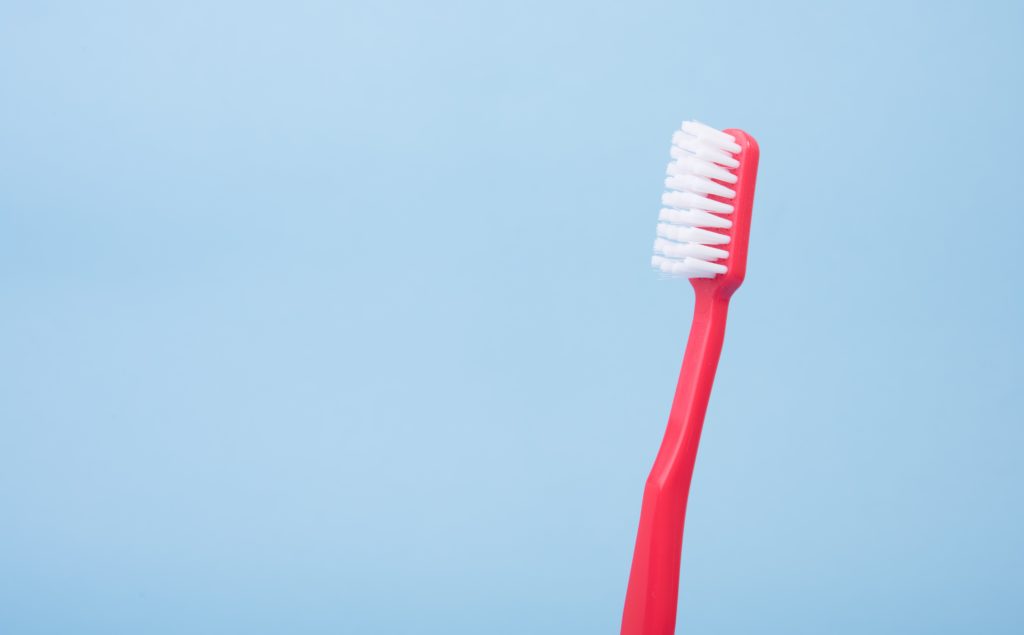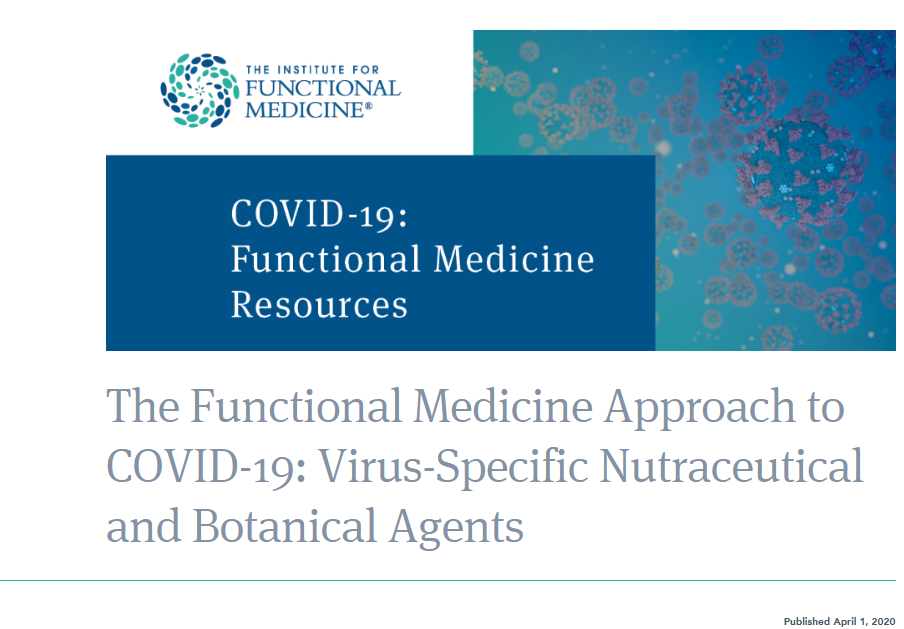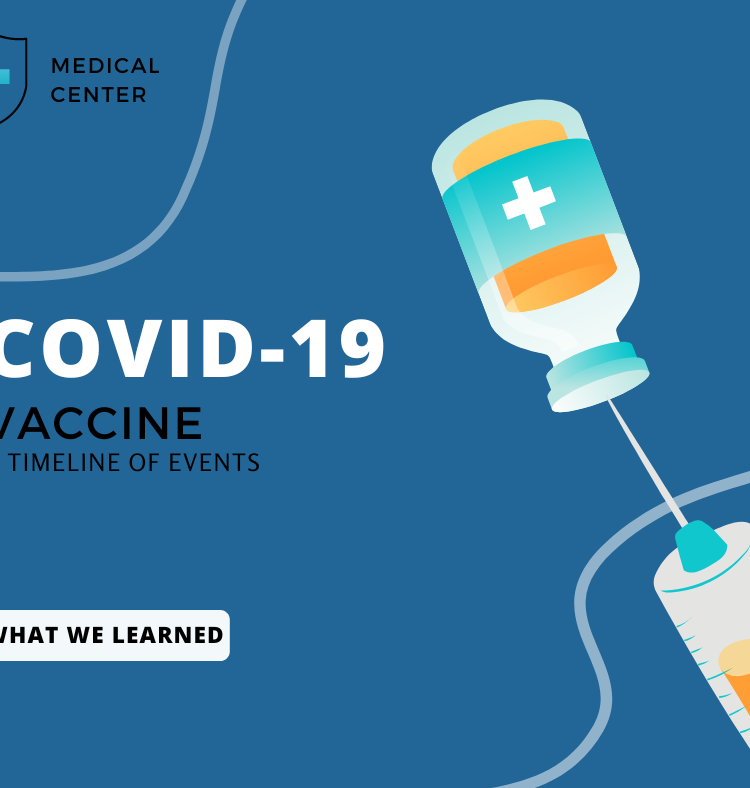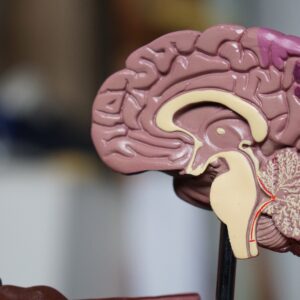How To Protect Your Immune System from Coronavirus (COVID-19)?
The coronavirus is fast-spreading, there are already a handful of patients with it at hospitals in Pembroke Pines and Fort Lauderdale, FL.
Like other flu viruses, this can be a potentially fatal infection for those who are immunocompromised, children, elderly, smokers, etc.
In my opinion, our best defenses are isolating ourselves from places with large groups, washing your hands, not touching the face/nose, etc.
We have been told numerous times about all of these things. But, we have to strengthen our own defenses against this so our bodies are better able to withstand any potential infection.
According to ContagionLive, a study published in the Journal of Gastroenterology found COVID RNA positive in stool samples of 71 infected people, but negative in their nasopharyngeal and oropharyngeal swabs. This may suggest that COVID affects the gut first before it spreads to the respiratory tract.
- In addition to the high fever and pneumonia symptoms, gastrointestinal symptoms could be a new focus for detecting COVID (March 16, 2020). This study also highlights the potential for fecal to oral transmission of this virus, so wash your hands, don’t shake people’s hands (do an elbow bump), hand sanitizer and/or use alcohol.
- More recently (March 23, 2020), unusual symptoms relating to the recent loss of smell and loss of taste have been reported as another way of detecting COVID infection. STAT news states “in late February in Nature, researchers in South Korea concluded that 30% of roughly 2,000 patients who tested positive for coronavirus had at some point lost their sense of smell. In Germany, clinicians surveyed 100 patients with coronavirus and found that up to two-thirds described a loss of smell and taste lasting several days” according to Hendrik Streeck, the head of University Hospital in Bonn, Germany.
- There may be evidence of a bacterial component with coronavirus. In 3 studies from China, the bacteria Prevotella was found in high amounts in those with COVID-19. This pathogen may aid in inducing pneumococcal pneumonia. This may be why azithromycin has worked as a treatment for COVID-19 – there is a bacterial component.
This post may contain affiliate links, which means I’ll receive a commission if you purchase through my link, at no extra cost to you. Kindly read the full disclosure here.
These are some things that I’ve researched and have collaborated with other physicians on:
1. Antioxidants Protect Against Excessive Lung Inflammation:
These nutraceuticals could decrease lung inflammation by suppressing viral spread, and by dampening pro-inflammatory signaling in endothelial cells that promotes influx of inflammatory cells. (Feb 12, 2020)
- Lipoic acid: Lipoic Acid Supreme from Designs for Health or Alamax CR from Xymogen
- Selenium: Selenomethionine from Biotics Research and eat 3 Brazil nuts daily.
- Zinc: Zinc Glycinate 120c by Xymogen. 15–20mg of zinc normalizes white blood cells and gives your immune system that boost it needs to fight off viruses/infections.
- Spirulina: Nutrex Pure Hawaiian Spirulina tablets
- Elderberry: Elderberry is seen in many medicinal preparations and has widespread historical use as an anti-viral herb. Based on animal research, elderberry is likely most effective in the prevention of early infection with respiratory viruses One in-vitro study reported an increase in TNF-alpha levels related to a specific commercial preparation of elderberry leading some to caution that its use could initiate a “cytokine storm.” However, these data were not confirmed when the same group performed similar studies, which were published in 2002. Therefore, these data suggest it is highly implausible that consumption of properly prepared elderberry products would contribute to an adverse outcome related to the overproduction of cytokines or lead to an adverse response in someone infected with COVID-19 (as per IFM.org).
- Beta Glucan: Immunotix 250 or Immunotix 500 from Xymogen
- N-acetylcysteine (NAC): promotes glutathione production, which has been shown to be protective in rodents infected with influenza. In a little-noticed six-month controlled clinical study enrolling 262 primarily elderly subjects, those receiving 600 mg NAC twice daily, as opposed to those receiving placebo, experienced significantly fewer influenza-like episodes and days of bed confinement.
(Source: https://www.ncbi.nlm.nih.gov/pubmed/32061635)
2. High Dose Vitamin C:
The government of Shanghai officially recommends Vitamin C as prophylactic for COVID-19 (March 1, 2020)
- Vitamin C contributes to immune defense by supporting various cellular functions of both the innate and adaptive immune system. Vitamin C accumulates in phagocytic cells, such as neutrophils, and can enhance chemotaxis, phagocytosis, generation of reactive oxygen species, and ultimately microbial killing. Supplementation with vitamin C appears to be able to both prevent and treat respiratory and systemic infections.[120] Vitamin C has been used in hospital ICUs to treat COVID-19 infection (as per IFM.org).
- Take Vitamin C to your bowel tolerance. Too much vitamin C will cause temporary loose stools. But this is how you can determine what your upper limit is.
- I suggest Xcellent C 120c by Xymogen, Perque Potent C Guard 8oz, C+ BioFizz powder from Designs for Health, Stellar C from Designs for Health, C-Zyme 1000 from Apex Energetics, Liposomal Vitamin C from Designs for Health.
- Eat your citrus fruits and squeeze them into your water. Cucumbers have a high amount of Vitamin C too, which you can juice them, eat them and infuse them in your water.
3. Diffusing Essential Oil Sage In Your Home:
The Journal of Molecules that found Antimicrobial & antiseptic activity of sage to be effective against severe acute respiratory coronavirus SARS-CoV (RNA virus). While this is a different strain of the current coronavirus, this could still help. (June 2019)
Pediatrician Dr. Elisa Song, MD suggests:
- Diffusing essential oils in our lobby, exams rooms and at home with a combination of Sage + other antimicrobial EOs.
- Adding Sage EO + other antimicrobial EOs to hand sanitizer with at least 60% alcohol
- Adding sage, thyme, and other antimicrobial herbs like oregano, basil, and marjoram to my cooking
(Source: https://www.ncbi.nlm.nih.gov/pmc/articles/PMC6612361/)
3. Traditional Chinese Medicine (TCM): Treat the phlegm in the lungs in the Early Stage of Illness
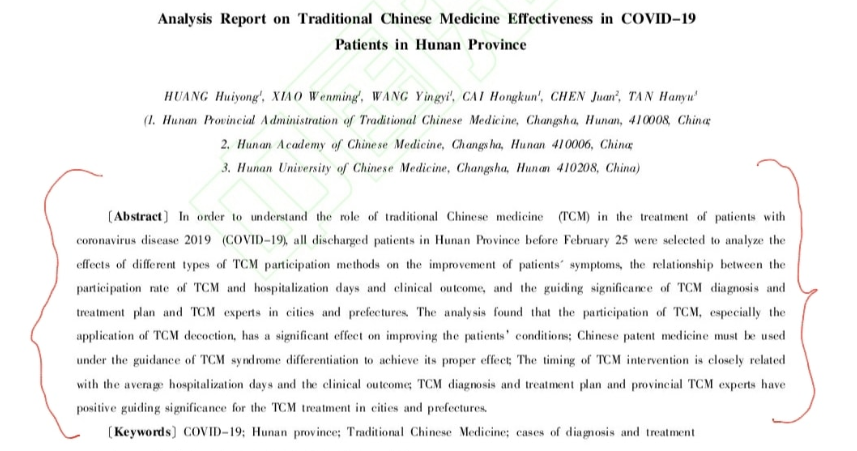
Dr. Ilyas Hamid of Balance Integrative Medicine is at the forefront of this COVID-19 debacle and in communication with treating TCM physicians in China. He released documentation from autopsies of Coronavirus victims that stated:
“The Lung itself has lost its elasticity and the outside layer of the Lung has a sticky layer covering it. It is suggested that COVID-19 may cause an inflammatory reaction characterized by deep airway and alveolar injury. The Lung essentially stopped working from the accumulation of Phlegm inside of the Lung, and this is how the patient eventually died. When Phlegm gets locked deeper into the Lung, the term is called ‘Sputum Bolt.’ When this happens, a Lung ventilator machine will not be helpful.“
“In this report, this Doctor recommends the usage of Chinese Herbs to treat phlegm in the Lungs in the early stages of the illness. According to reports from China, more people are recovering with Chinese Herbs in comparison to those who are dying. Up until the 17th of February, 60,107 cases used TCM therapies in 85.2% of all the patients, and 87% had significantly improved.”
4. Herbal Supplements
Artemisia (wormwood): found to inhibit the transmission and replication of other strains of the coronavirus (SARS-CoV strain BJ001). (2005).
Wormwood is also used to get rid of parasites, prevent dengue fever and treat malaria. Although it is a different strain of the coronavirus, this may be a promising prophylactic.
(Source: https://www.ncbi.nlm.nih.gov/pubmed/15885816)
Andrographis: found to restrain viral replication in SARS-associated coronavirus
(Source: https://www.ncbi.nlm.nih.gov/pubmed/27896563 , https://www.ncbi.nlm.nih.gov/pubmed/15885816).
5. Vitamin D5
D3 5000: Take 5000 IUs of Vitamin D3 daily to maintain optimal serum levels between 70 – 100. The Journal of Bone Metabolism in 2018 found that 2000 IUS/day is NOT enough to keep serum levels above 30 ng/mL.
And if you have a higher body weight you need 15,000 – 20,000 IUs (2-3x higher) the dose to keep your levels normal. A good way to determine your dose may be to dose 1000 IUs of Vitamin D3 per 25 lbs of weight.
Example: If you weight 150 lbs you may take 6000 IUs/day.
Vitamin D protects and strengthens your immune system, thyroid, and bones, regulates hormones, and more. I suggest D3 5000 from Xymogen. Some research has found Vitamin D may be dosed based on body weight
Source: https://www.ncbi.nlm.nih.gov/pmc/articles/PMC6135651/, https://www.ncbi.nlm.nih.gov/pubmed/25372709
6. Colostrum
Colostrum may have potential in humans to protect and lessen the effects of coronavirus. Calves given Bovine Coronavirus were either administered a placebo or colostrum from egg and cow’s milk.
These results indicated that the orally administered egg yolk and colostrum powders protected against BCV-induced diarrhea in calves and that the egg yolk used provided a higher degree of protection compared to colostrum powder on a titer basis.
Although this is not the same strain as the COVID-19, it is still a coronavirus and it may be useful to utilize colostrum as a preventative measure.
I suggest: IG-26 in powder or capsules from Xymogen and/or Dr. Jack’s Colostrum spray called Immune Defend Spray 5oz
Source:
7. Fortify Your Guts:
Given that a recent study found positive viral RNA in stool but negative in the respiratory swabs, it may be a good idea to take probiotics to keep your gut microbiome strong. The more “good” guys you have in there the better you can push out the “bad” guys.
These studies recommend stool testing for COVID in addition to nasal swabs.
Eat garlic, oregano, and pungent spices, and take antimicrobial herbs.
8. What Not To Do
A brand new study from the Lancet journal suggested “patients with cardiac diseases, hypertension, or diabetes, who are treated with ACE2-increasing drugs, are at higher risk for severe COVID-19 infection”
Ibuprofen, ACE inhibitors, ARBs, and Thiazolidinedione medications may increase the risk of COVID-19 infection.
*France has also put out a message saying ibuprofen, cortisone, paracetamol, and other NSAIDS can worsen the infection*
Smoking: anything that strains/pollutes the lungs is probably not going to help you be at 100% if you encounter this virus.
9. Drug Treatments: Hydroxychloroquine, Chloroquine
According to a preliminary paper (March 20, 2020), Hydroxychloroquine in combination with azithromycin offers benefit to those with COVID-19.
“In a recent trial with patients on COVID-19 treatment, 100% of patients
treated with hydroxychloroquine in combination with antibiotic azithromycin were virologically
cured comparing with 57.1% in patients treated with hydroxychloroquine alone, and 12.5% in the control
group.
Currently, chloroquine and hydroxychloroquine will be tested in patients with pneumonia
caused by 2019-nCoV and chloroquine as preventative medicine for COVID-19.”
This may be a keystone helper. It’s very early to make a definitive claim that this would be good for EVERYONE, but it appears promising. We will have to watch and see how this turns out.
10. What Herbs/Foods Have The Same Effects as Chloroquine and Hydroxychloroquine?
Chlorquine drugs are “zinc ionophores.” Zinc ionophores transport zinc into the cell’s inner membrane where it can stop viral replication.
Which is why zinc is one of the things that is being recommended for the prevention of this virus. Many people have sub-optimal levels of zinc (especially elderly/older people/those with H. Pylori due to low stomach acid).
What other foods can act as zinc ionophores?
- Quercetin – Quercetin has been shown to have antiviral effects against both RNA (e.g., influenza and coronavirus) and DNA viruses (e.g., herpesvirus). Quercetin has a pleiotropic role as an antioxidant and anti-inflammatory, modulating signaling pathways that are associated with post-transcriptional modulators affecting post-viral healing (as per IFM.org). Quercetin, a plant pigment is a potent antioxidant flavonoid and more specifically a flavonol, found mostly in: broccoli, onions, bell peppers, shallots, capers, apples, grapes, elderberries, strawberries, raspberries, blackberries, blueberries, cranberries, citrus fruits, cherries.
- Quercetin has been successful in the treatment of Ebola and Zika and according to researchers in Montreal it may offer promise for the treatment of COVID-19. They are currently administering Quercetin to 20-30 patients.
- Quercetin has antiviral properties against other viruses: Heptatitis C, Dengue type 2, Influenza A
- EGCG: Green tea, in addition to modulating the NLRP3 inflammasome and, based on a preprint, potentially targeting the COVID-19 main protease (Mpro)[31] to reduce viral replication, has also been shown to prevent influenza in healthcare workers (as per IFM.org). The highest concentrations found in green tea, black tea, white tea. May also can be taken in supplement form: EGCG from Designs for Health.
11. Oral Health: Prevotella
Since Prevotella was found to be high in those with COVID-19 we must look to where this bacteria resides.
It’s a common bacteria in the oral cavity and is associated with periodontal diseases. I have also seen this elevated in stool tests.
If we examine the North Korea cases and their dental hygiene habits it may offer a link. North Korea has the lowest reports of the virus.
North Korean culture has the habit of brushing their teeth 4 times per day – which may offer them better oral hygiene – LESS likely to have build-up of Prevotella bacteria – LESS incidence of coronavirus cases.
This is just a theory but it may speak to the importance and necessity of brushing your teeth more than 2x/day.
I happened to be using Dentalcidin-LS rinse for the last 3 months – and I’m so glad I did! Strongly recommend using this to kill off oral bacteria. Even Dentalcidin toothpaste as well.
As we watch the emerging research, theories, and connections it serves to remind me……everything is connected.
12. As of April 1, 2020 The Institute of Functional Medicine recommends the following natural botanicals for potential inhibition of COVID-19:
The IFM goes on to say “we recommend the following compounds, at standard dosages, to prevent activation of the NLRP3 inflammasome, to decrease NF-kB activation, and to potentially inhibit COVID-19 replication”
Many of these were previously listed and some are new:
Quercetin, Curcumin, EGCG, NAC, Resveratrol, Vitamin D, Elderberry, Melatonin, Vitamin A, Vitamin C and Palmitoylethanolaminde (PEA)
The full article and dosage recommendations can be found here: IFM
Many of these were previously listed and some are new.
13. Prebiotic Fiber & Microbiome Support:
On January 31, 2021, the British Medical Journal found that those with COVID had more severe symptoms when they had a lack of specific good probiotic bacteria in their guts – read the full article on Gut Bacteria Predicts Severity of COVID-19 Symptoms.
To order supplements:
- www.Kaerwell.com/go/drjack : Create an account with your email address and use the access code “Jack”
- Use the discount code: JackVIP at checkout
- Call our office: 954-630-1616
More Helpful Blog Posts on the Immune System
- Dissolve Breast Cysts With Frankincense Oil
- Tonsil Stones Can Be A Manifestation Of Dairy Sensitivity
- Mushrooms Lower Thyroid Antibodies: Hashimotos & Graves Disease
- Mirena IUD Increases Vaginal Infections & Risk of Breast Cancer
- Soy and Breast Cancer: Our gut bacteria determine how protective soy is
- Love Your Ovaries: The Truth About HPV Vaccines
